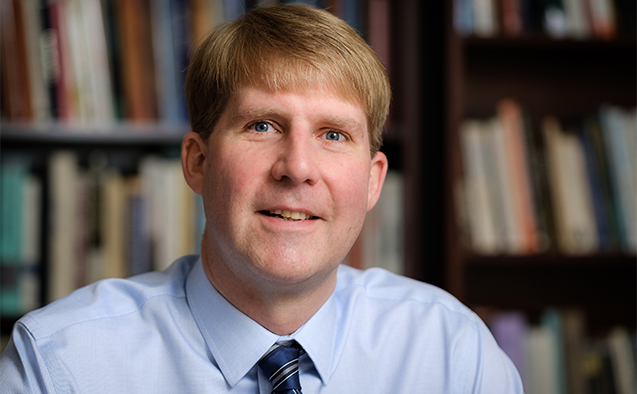State governments: Power during the pandemic

The coronavirus pandemic has brought into focus the importance of state governments and the wide-ranging authority of state officials, especially governors, in responding to emergencies. John Dinan, a Wake Forest University professor of politics and a leading national expert on federalism, state constitutions and state legislatures, can discuss the emergency power of state governments and governors.
Dinan outlines key issues related to state government powers and the coronavirus:
- State vs. federal power: Although many commentators have been surprised by the prominent role of state governments in responding to COVID-19, state governments actually possess more power than the federal government in responding to a health crisis. State governments can issue shelter-in-place orders and close or open businesses and schools – powers that can only be exercised by state and not federal officials.
- Governors and legislatures: Governors in most states possess the power to act unilaterally and without need for any legislative approval, in ways not fully appreciated prior to the coronavirus, and in ways that are already leading to a reconsideration of some state emergency-power arrangements and possible changes to give legislators more of a role in the future. State legislatures around the country are proposing laws and constitutional amendments to limit or compensate for the exercise of state emergency powers.
- State governments and individual rights: When considering the power of state governments to restrict the activities of individuals and other organizations, whether abortion providers, gun shops, or churches, judges have occasionally imposed limits on the exercise of state authority but for the most part they have relied on longstanding precedents that allow state officials to wield extensive power vis-à-vis individual rights in a health crisis. There may not be a pandemic exception to the bill of rights, but judges are generally willing to give state officials a great deal of deference in these situations.
- State and local governments: In many cases, state governments can preempt actions of city and county officials, not only in “Dillon’s rule” states where localities enjoy little independence, but also in home-rule states where localities ordinarily enjoy some independent governing authority. To the extent that localities have been able to maintain stricter policies than a state as a whole, it is generally because governors have allowed them to do so and would not be possible in cases where a governor prefers a uniform policy.
Dinan is editor of Publius: The Journal of Federalism, author of the book, State Constitutional Politics, and writes an annual review of state constitutional developments.
Categories: Experts, Research & Discovery
Wake Forest News
336.758.5237
media@wfu.edu
Meet the News Team
Headlines
Wake Forest in the News
Wake Forest regularly appears in media outlets around the world.




